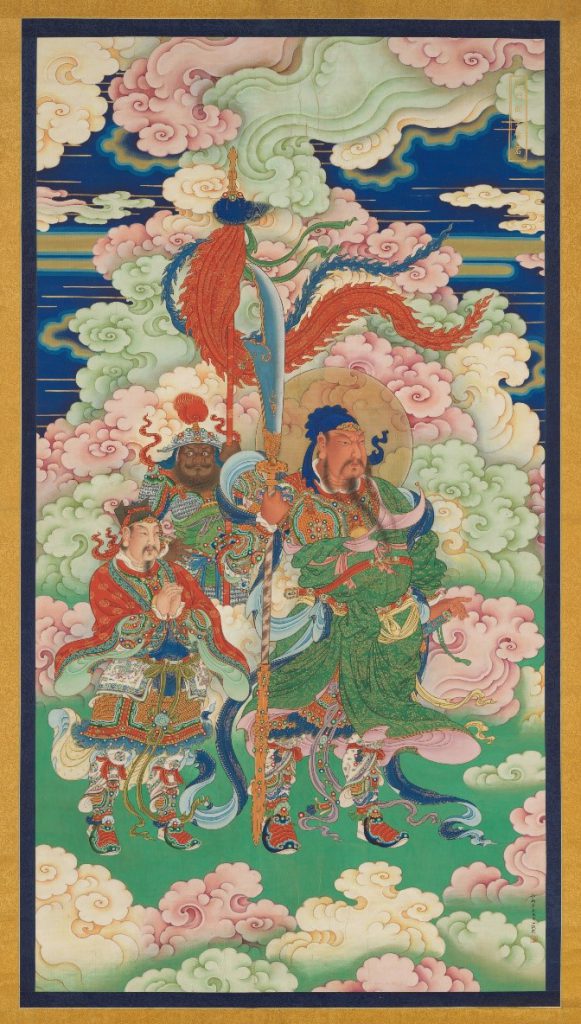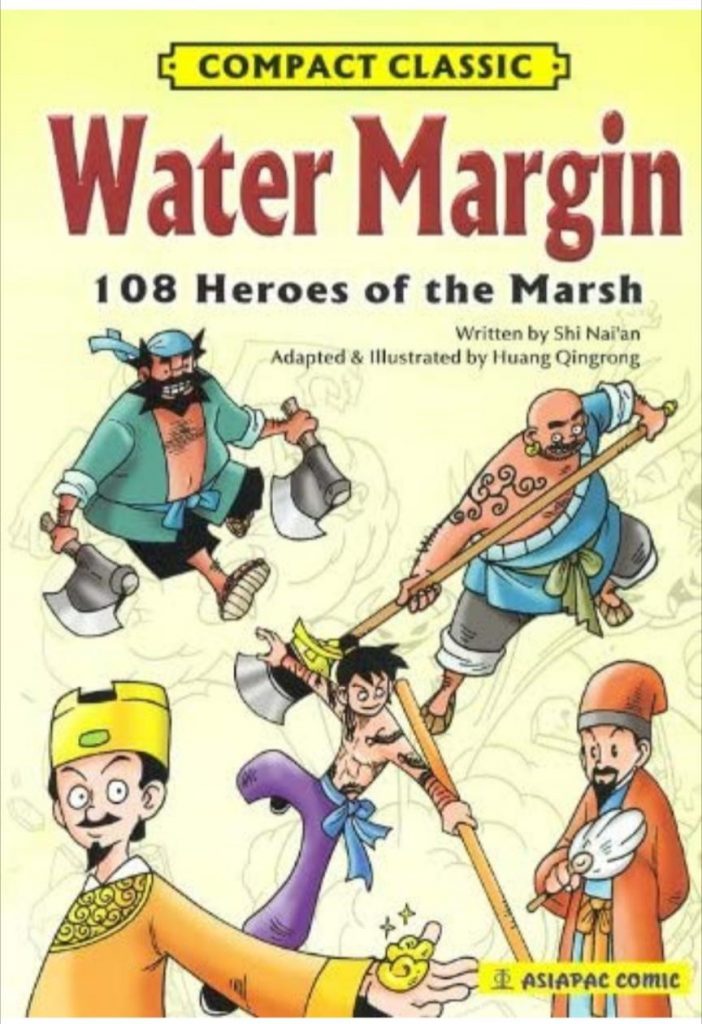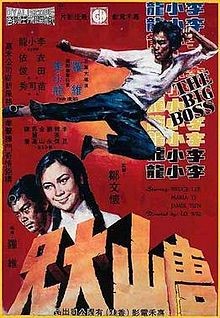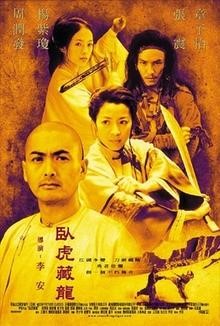Yi Qi and Male Bonding
East and West
Syntax and Semantics
– 20 Feb 22
(Before proceeding, you will find it useful to first read Stephen Lee’s entertaining and informative article about Yi Qi that is posted on this site.)
As I’m composing this essay, East and West are just barely balancing on the verge of WW III. The US/EU could go to war at any time with Russia, China, North Korea or all three. I hope you are reading this essay in peace.
The question in the title of this article came to mind as a result of having read and discussed a draft of Stephen Lee’s article about the meaning of Yi Qi (righteous loyalty), its ancient, complex, and fascinating philosophical/linguistic origins via the transmogrification and malleability of Chinese characters, concluding with a discussion of Yi Qi in China today. Stephen notes that there are seemingly coincidental similarities between manifestations of Yi Qi and what in the West is called Male Bonding.
For example, Chinese tales of the mythical folk hero warrior, Guan Yu, extol the virtuousness of truly righteous loyalty, the warrior standing by his fellows in danger and never betraying them to the evil enemy. Stephen notes that there’s also a sinister side to Yi Qi as represented by the 108 Outlaws of the Marsh. These folk heroes stole from the rich and gave to the poor, similar to the Western myth of Robin Hood and his Merry Men. The difference between these two gangs being that The Hood bunch returned to the Nottingham people the money stolen by the local aristocratic crowd from those same people, whereas the Marsh bunch gave the money they stole from the aristocrats to poor people who had not necessarily been the original victims. Thus, The Marsh system was not as efficient or equitable a redistribution of wealth scheme as perpetrated by the Hoods. However, both involved the commission of many violent felonies.
The West has many examples Yi Qi/Male Bonding that are not remotely pure, righteous, good, or productive. Butch Cassidy and the Sundance Kid are two loyal buddies gone bad…sticking together through adversities of their joint making and dying side-by-side in a hail of retributive bullets. Another, larger, example is The Wild Bunch. These four dastardly desperados didn’t have a shred of the Cassidy/Kid humor and joie de vivre. Not a bon mot between them. Neither of these two gangs gave any of their stolen loot to any poor people, keeping it all for themselves. Yet they too are folk heroes because of their devotion to Yi Qi. And then, of course, there’s the Mafia, American folk hero murders and extortionists simply dripping with Yi Qi and blood.
In modern America the ideal of Yi Qi in all its variations is robust. Every extreme is represented, from fraternal charitable organizations (pure) to drug cartels (toxic), with political organizations (dominated by male bonding) located somewhere in between those poles. Thus, it’s clear that it’s really not just a coincidence that China’s Yi Qi is paralleled in the West with Male Bonding. It’s not a coincidence because, after all, we’re all humans. Our ancestors faced the same problems and mysteries, few of which have been fixed over the millennia. The difference today between each of us and between our cultures is simply a manifestation of different routes to failed resolutions of our common problems and mysteries.
Welcome to Alice’s Restaurant!
Arlo Guthrie’s Alice’s Restaurant, released in 1967, is the generational anthem for most War Babies (1939-45) and Baby Boomers (1946-64). The first seven minutes forty-two seconds of this song are about Arlo’s adventures in Stockbridge, Massachusetts: Thanksgiving dinner at Alice’s restaurant and his subsequent arrest and trial for littering and creating a nuisance…but that’s not what he came to tell you about. He spends the remaining ten minutes fifty-seven seconds singing about the Military Draft, a very hot topic during the Vietnam War. I’ve started out talking about Yi Qi. Here’s what I really came to talk about: The Roots of our Common Humanity and the Routes we need to collectively take so as to reacquire our Common Humanity.
The primary focus of this essay concerns how to restore harmony among and between the bitterly splintered factions of our originally Common Humankind. These factions we usually refer to as our myriad cultures, nations, economies, minor genetic variations, languages, philosophies, religions, and other artificial, antagonistic, and divisive instruments of civilization. The original humans fought over food, water, and basic survival. In today’s world we have dozens of more things to fight about, most of which have nothing to do with food, water, or basic survival: patriotism, politics, beliefs, irrational prejudices, languages, and cosmologies. What could be more idiotic than to go to war or start a bloody riot over skin color, a flag, a political party, or especially those variable cultural answers as to where we all came from originally and why. “Especially” because nobody really knows and probably never will.
So…Let’s talk about just one of these splintering factions, the least likely to stir up patriotic or cultural animus: Languages
My father and his three older siblings were China-born, children of a Presbyterian missionary in Shandong Province during the disarray of the prolonged warlord period. When I was a very young child, I remember that my now grownup Aunt Beth hung embroidered towels in her New York apartment that read East is West. It was not until several decades later that I began to understand this cryptic message. We will return to this theme shortly, but first…
There’s a traditional belief/stereotype among Westerners, Anglo-Americans especially, that the Chinese people and their language are inscrutable. Well, what does that mean? The dictionary says, “impossible to understand or interpret”. So, perhaps Americans criticize the Chinese because Americans aren’t intelligent enough to understand what is being said or written in Chinese. In turn, Chinese people traditionally believe that Americans are blunt, both in language and mind. So, perhaps Chinese people criticize Americans because our dominant language, English, is, for the most part, direct and blunt and, well, plain ol’ Anglo-Saxon…avoiding ambiguity of meaning whenever possible. Or perhaps there’s another explanation for these stereotypes.
The source of these cross-cultural stereotypes is most likely the syntax and semantics of their respective languages. If Yi Qi is translated as “righteous loyalty”, that’s inscrutable to an American. But if it’s translated as “male bonding”, there’s no problem.
Let’s see which language and which culture is more inscrutable by comparing two quotations. Which of the following quotations was written by a Chinese scholar and which by a Western scholar:
A man is never too old to learn.
vs.
A man is never too old to set another goal or to dream a new dream.
Both of these aphorisms have a similar message, but one is blunt while the other is a bit fuzzy. So, it may surprise that the first quotation was written by an anonymous Buddhist scholar several thousand years ago and that the second is by the famous British scholar, C.S. Lewis.
Which of the following quotations is more inscrutable?
What is the sound of one hand clapping? (an ancient Buddhist riddle)
If a tree falls in the forest when nobody’s around, does it make a sound? (Bishop George Berkeley, a 17th-century Anglican)
They both seem inscrutable to me. Well, maybe these aren’t representative samples. Maybe Eastern thinking really is more inscrutable than Western philosophy. Let’s start out in neutral territory, somewhere neatly in between East and West: Ancient Greece was influenced by Egyptian, Iranian, and Chinese scholarship that flowed along the Silk Road and other trade routes. Our neutral thinker of choice is that famous pagan Plato. He postulated that physical objects and indeed the entire observable universe was nothing but shadows of True Reality (what he called Forms) that we mere humans could never see or experience.
Returning to Bishop Berkeley, who goes Plato one better, we find that this inscrutable Western Christian scholar believed in Immaterialism, a philosophy that denies the existence of all material substance. That is, all objects and indeed the entire observable universe exist only as ideas in our minds. If we don’t think about something, it doesn’t exist. There is no reality at all.
Let’s now compare, using the inscrutability scale, these two Western philosophers with their ancient Chinese counterparts. Several thousand years ago in pre-Buddhist China, philosophers thought about the Dao. The Dao is an ultimate source that connects all things and the entire observable universe. Everything is real, tangible, observable…no Forms or shadows or ethereal existence-only-in-the-mind. Rather the Dao is a Way or Guide that is observable, accessible to cultivated people who have the leisure time to contemplate it. In this real world, patterns can be detected, cyclical patterns that interact between the polar forces of Yin and Yang. Yin is a symbol of earth, femaleness, darkness, and passivity. Yang is a symbol of heaven, maleness, light, and activity. While these distinctions are offensive to our modern Western views, they match perfectly with how both Westerners and Easterners have divided things up for millennia. Furthermore, traditional Chinese philosophy at least acknowledges that water is wet, rocks are hard, a chair can be sat on…in short, the world exists in reality.
We can see that in the Pre-Science Age, the Greeks, Chinese, and Europeans postulated a similar answer to a shared mystery. Yet it was the Chinese solution that is the least inscrutable.
But what about modern times? Is the situation different now? Only slightly. If you read the modern Western philosophers, you will note extensive incorporation of Eastern ideas from the Dao, Buddhism, Islam, Jainism, and even some of the Hindu scripts. Reading modern Chinese philosophers, one finds substantial bits and pieces of Kant, Hegel, Marx, Nietzsche, Bergson, Dewey, and Heidegger.
Ahhh. But then there’s those ambiguous scribbles called Chinese characters that they use for writing. Not like good, clear, alphabet writing with just a few, easy to write and type letters. Certainly this makes English less inscrutable than Chinese…or does it?
Here’s a simple, plain, typed-with-letters sentence in English. “As a linguist, I love ambiguity more than most people.” See? Clear as a bell, sort of. This sentence could mean that the linguist “loves ambiguity but doesn’t appreciate most people” or that “most people don’t love ambiguity as much as he does”.
Well, perhaps Anglo-Americans can at least take comfort in the fact that English words are clear, unambiguous, and never inscrutable. Except maybe just a few, such as the word “sanction”. Even though this word is typed clearly with letters, “sanction” can mean either approve or disapprove. Compare with those Chinese scribbles. Approve: 批准 could never be confused with Disapprove: 不赞成. And then there’s flammable and inflammable. Both mean capable of catching fire. The list of inscrutable English words is almost endless, if not also eternal or infinite. To conclude with a good, clear Western question…If waves really exist, where do they go when they reach the beach?
继续我们的旅程
The above process of analyzing languages can be applied also to all the other previously mentioned factions of civilization that divide our Common Humanity, but such a detailed analysis is beyond the scope of this essay. Very briefly, all the philosophic, linguist, religious, and other cultural artifacts and variations extant today are just a dense, swirling fog keeping us from seeing that we’re all just humans trying to figure out how to stay safe in a dangerous and confusing world…and once safe, how to get along in peace. All the past and present isms of religion, politics, and philosophy are just failed and conflicting experiments. We are bungling alchemists in a universe based on cold and uncaring physics.
We are all humans, evolved from the same genetic mixture that uniquely gave us an opposable thumb and an immensely intelligent brain, a brain that learned how to use the thumb for more than climbing trees and gathering fruits. We’ve used our thumbs and cumulative knowledge to build and to destroy; to make war with technological gusto and diligence; to strive for peace but neither sincerely nor successfully. Humanity gets an “A” in the course of evolution for our millennia of effort, but a C- for achievement. We are still ignorant children playing with fire. The time left for us to grow up is perilously short.
No one culture, no nation, no person is passing the course. We need to give all others a break. Stop the chest thumping, stop the celebrations of our respective failed experiments, and get back to the difficult task of studying, striving to find better ways to achieve harmony and to solve all our common mysteries.
Now back to Aunt Beth’s embroidered towels… “East is West”

Like a maze when first encountered, all of Humankind’s myriad, eclectic routes through life over time and place appear jumbled, confused, and divided into many paths. Yet on closer examination, there is continuity, harmony, and a common goal. The maze is not made of many parts, rather, like Humanity, it’s an indivisible unit, a living organism thriving in the same soil under the same sky. Viewing the maze from above is much different than from on the ground. An individual can’t see that there’s a common goal when inside the maze, rather only the varied pathways. Most of the paths are dead ends.
The trick for Humanity is for everybody to harmoniously help to find the correct route to the common goal.
OBT, James
End Notes
Sino-American stereotypes: https://immi.se/intercultural/nr42/zhu.html
You may listen to the song and read the lyrics of Arlo Guthrie’s, Alice’s Restaurant at, respectively: https://www.youtube.com/watch?v=m57gzA2JCcM
and https://www.google.com/search?q=alice%27s+restaurant+full+lyrics&rlz=1C1RXQR_esES973ES973&oq=alice%27s+restaurant+full+lyrics&aqs=chrome..69i57j0i22i30l2.14811j0j15&sourceid=chrome&ie=UTF
__________________________________________________________






